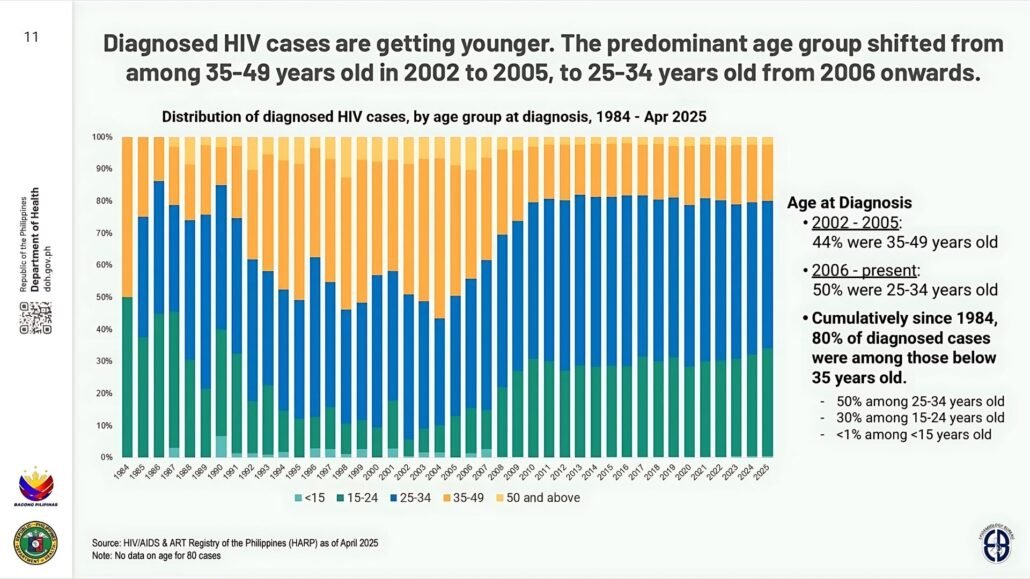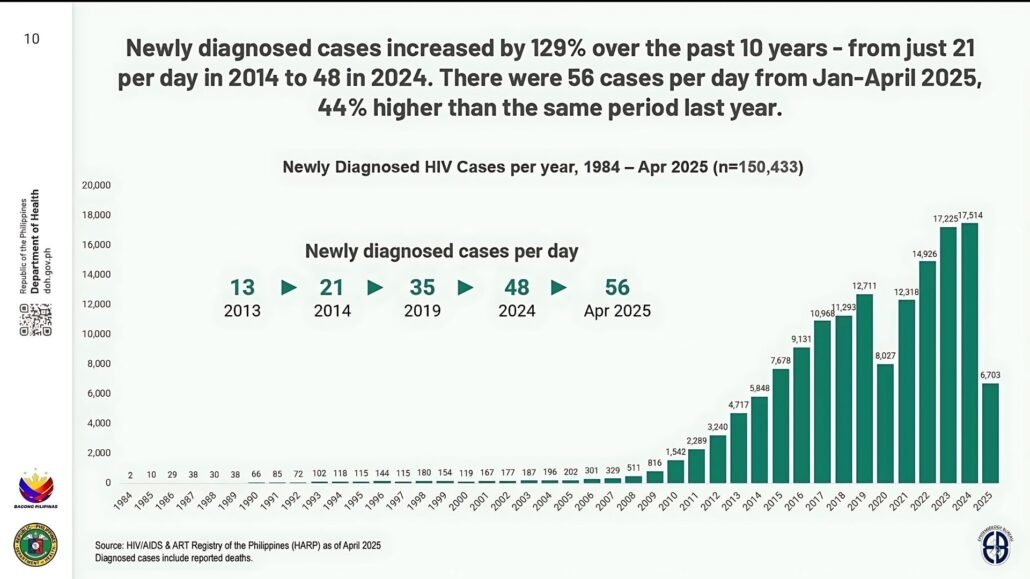The Department of Health (DOH) raises alarm over 500% rise in youth HIV cases in early 2025. From January to April 2025, the country recorded an average of 56 newly diagnosed HIV cases per day. This marks a 44 percent increase compared to the same period in 2024, which averaged 39 daily cases.
In total, 6,703 new HIV cases were documented in the first four months of 2025. The previous year saw a record high of 17,514 new cases, the most ever reported in a single year. At the current pace, the 2025 total is on track to match or exceed that figure.

Long-term data shows a sharp and sustained rise in daily cases. In 2013, the country reported 13 new cases per day. That figure rose to 21 in 2014, 35 in 2019, and 48 in 2024. By early 2025, it had reached 56, reflecting a 129 percent increase over the past decade.
The increase continues to be driven by new infections among younger Filipinos.
Since 2006, the age group 25 to 34 has consistently accounted for half of all new HIV cases, while another 30 percent have been among individuals aged 15 to 24. Those under 15 account for less than one percent. This age pattern remains consistent in 2025.
The dominant mode of transmission is sexual contact, with the majority of cases occurring among men who have sex with men (MSM). This includes both male-male and bisexual contact. Since 2007, MSM has remained the leading transmission category.

From 1984 to April 2025, 83 percent of all documented HIV cases in the country have involved MSM transmission. Prior to 2007, most cases were attributed to heterosexual contact.
In response to the rising numbers, the DOH is calling for a national public health emergency to be declared.
Health Secretary Ted Herbosa emphasized the need for unified action, stating, “Maganda na magkaroon tayo ng public health emergency, national emergency for HIV dahil magtutulong-tulong ang buong lipunan.
The whole of society, the whole of government can help us in this campaign na mapababa ang new cases of HIV.”
As of June 3, there has been no official response from President Ferdinand Marcos Jr. or Malacañang regarding the DOH’s recommendation. The department continues to urge immediate measures to expand testing, treatment, and education efforts to slow the spread of HIV in the country.












